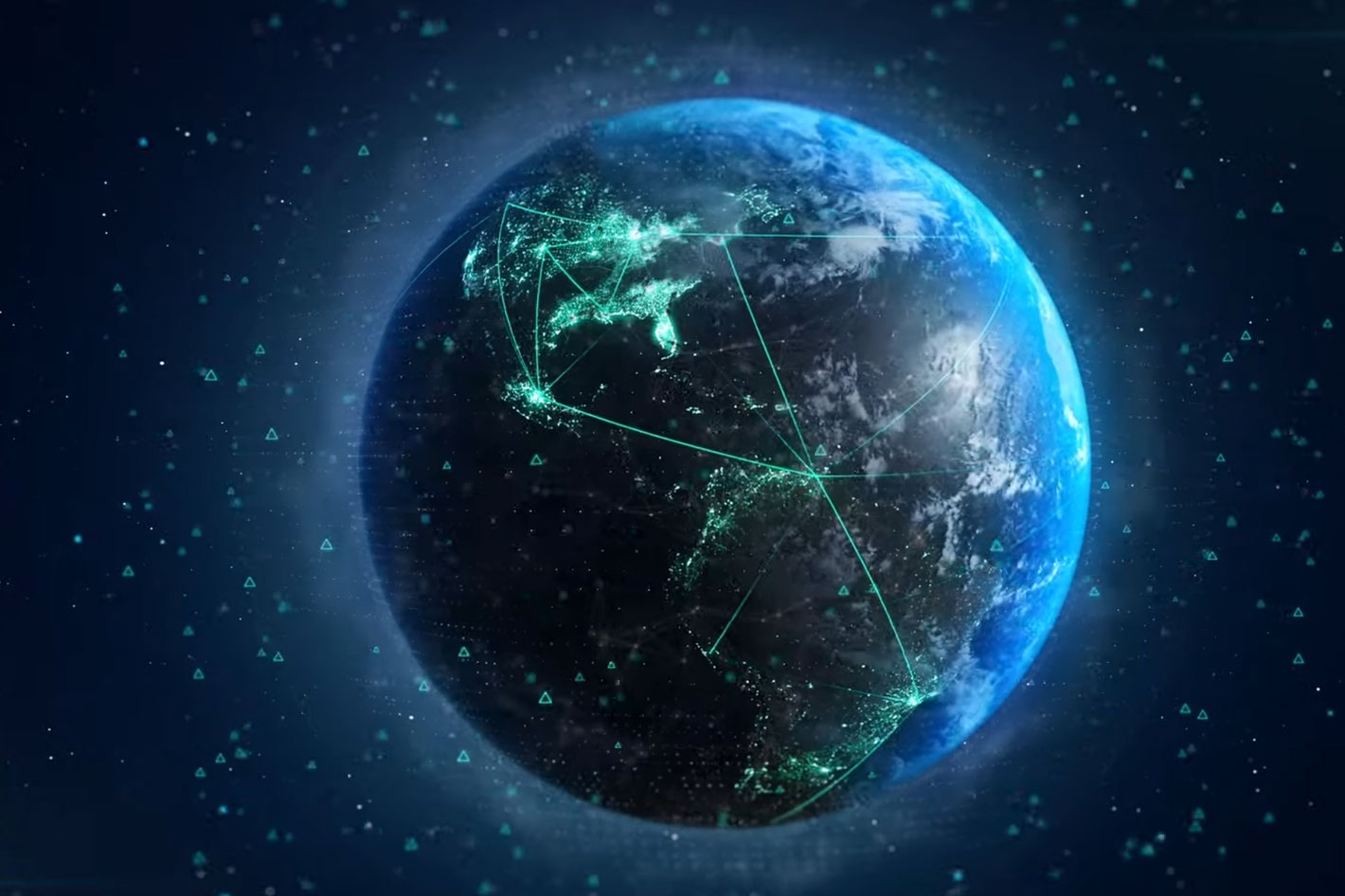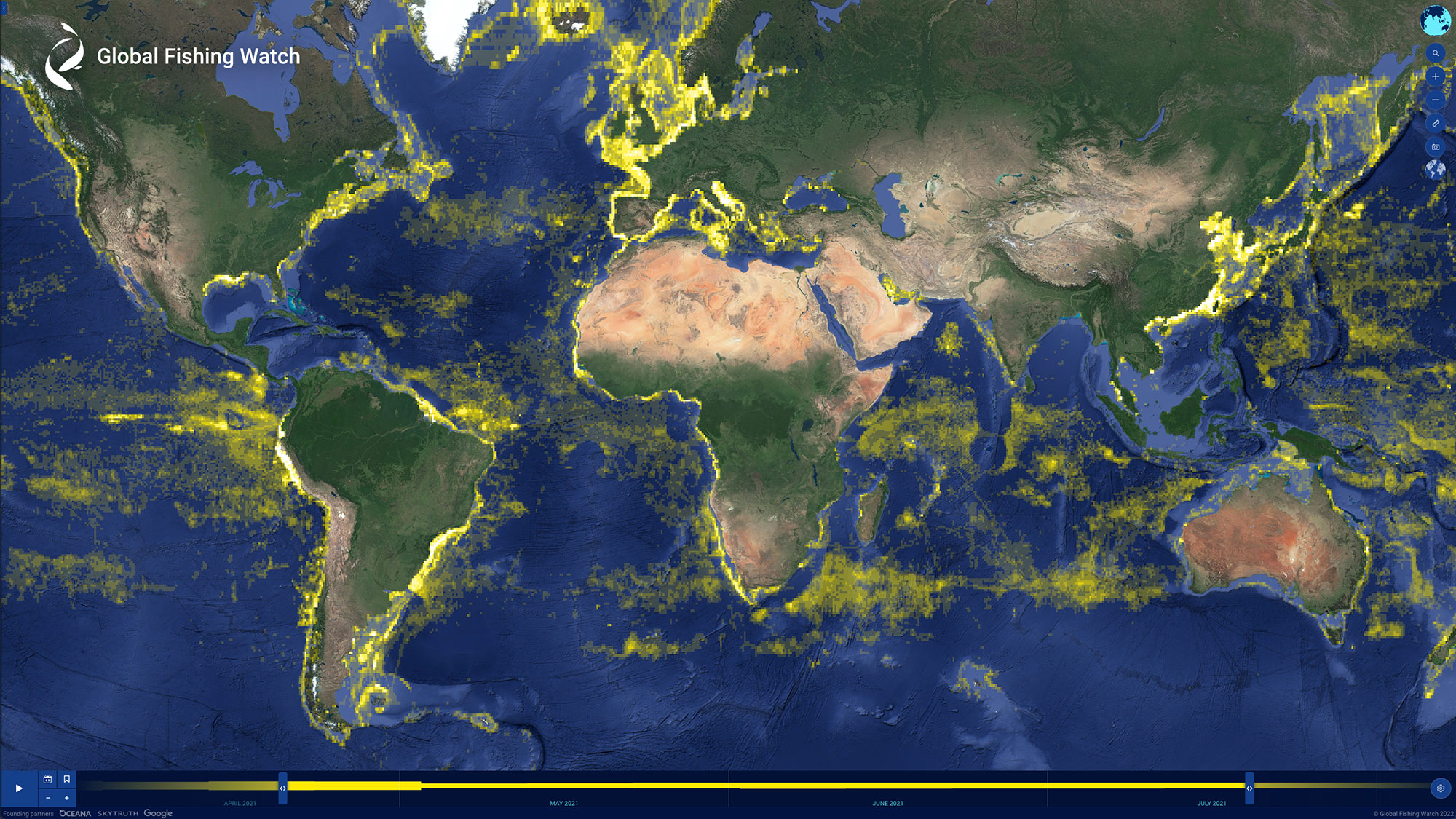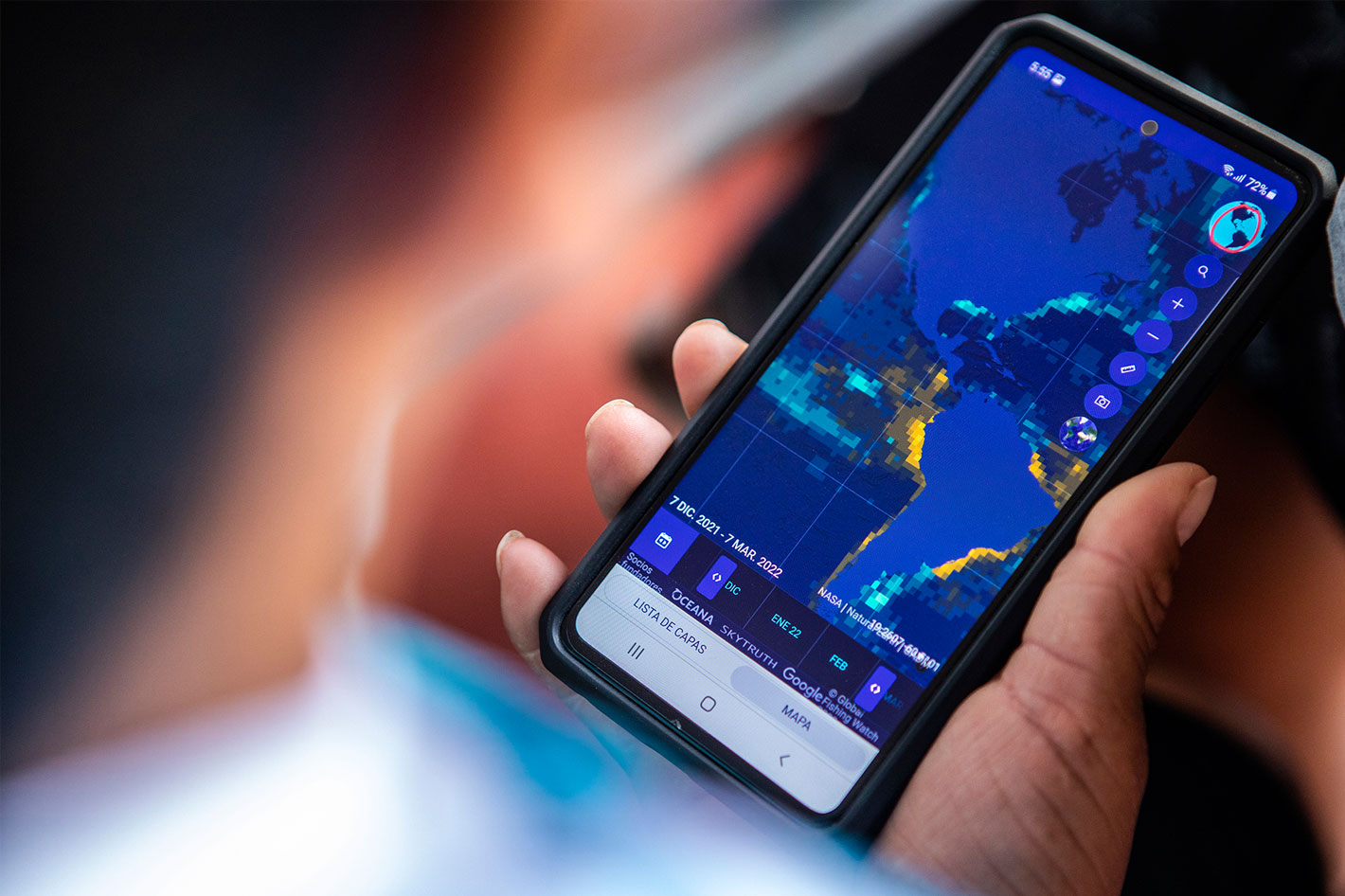Global Fishing Watch has received a five-year $60 million commitment that will catalyze a new initiative to apply AI and satellite data to help end illegal fishing and safeguard the ocean.
Founded in 2015 as a collaboration between Oceana, SkyTruth and Google, Global Fishing Watch has demonstrated the power of artificial intelligence and satellite data to shine a light on global fishing activity. The nonprofit built the first-ever map to visualize and publicly track industrial fishing vessels – some 70,000 boats – in near real-time.
“Today, anyone can freely access satellite imagery to explore every road and building on land with just a few clicks of a mouse. We want to do the same for the ocean: create a complete, dynamic map of all industrial activity at sea that’s free for anyone to view and use,” said David Kroodsma, director of research and innovation with Global Fishing Watch. “Our initiative is audacious. It is new, big and bold. We’re driven by the potential for impact – and that potential is hugely exciting.”
The audacious initiative is taking its next step, as Global Fishing Watch announces it has received a five-year $60 million commitment through The Audacious Project to leverage open data and emerging technology to revolutionize global ocean management. Over the next five years, the ocean conservation nonprofit will publicly map more than one million ocean-going vessels and all fixed infrastructure at sea.
The new funding will allow Global Fishing Watch to reveal all human activity at sea. Ocean stewardship efforts have been hampered by the absence of accurate and actionable information. Many governments lack the resources needed to process and analyze data on where and when their boats are fishing and what they are catching, or monitor other human activity at sea. The Open Ocean Project will unleash a new wave of open data and transparency in ocean governance.
 Open Ocean Project: info for all to see and use
Open Ocean Project: info for all to see and use
Under this open ocean project, Global Fishing Watch will combine GPS data with millions of gigabytes of satellite imagery and use machine learning to publicly display the activity of all industrial fishing vessels and hundreds of thousands of small-scale fishing boats and cargo ships. It will also map all stationary infrastructure at sea like aquaculture pens, wind farms and oil rigs, opening an online window onto our impact across our blue planet for the first time.
“To protect the ocean, we need to see and understand everything that happens at sea. And we need to empower institutions and people to act on that knowledge,” added Paolo Domondon, chief program officer with Global Fishing Watch. “We’ll enable governments to improve the management of their waters to better protect the marine environment and the people who rely on it – both by using our technology platform and by co-creating tools that meet their own specific needs.”
To celebrate the announcement of the funding, Global Fishing Watch’s chief executive officer, Tony Long, delivered a TED Talk released on World Ocean Day (June 8) describing the organization’s pioneering project to map and monitor all industrial activity at sea and make this knowledge freely available to the world.
“Shockingly, little is known about human activity taking place across more than two-thirds of our planet’s surface. This must change if we’re to restore our ocean’s health,” said Long. “We’re honored to receive this catalytic funding through The Audacious Project, which clearly signals support for our innovative technology to tackle the urgent crisis in our ocean. With this investment, we can transform how we manage the ocean by making the invisible visible.”
 Raise an additional USD $60 million
Raise an additional USD $60 million
Housed within TED, a nonprofit dedicated to “ideas worth spreading”, The Audacious Project selects a cohort of projects every year that represent bold solutions to critical challenges facing the world. By connecting these ambitious initiatives with an inspiring group of donors and supporters, The Audacious Project helps accelerate big ideas and amplify the overall impact of the work.
The project from Global Fishing Watch will receive $60 million in funding from multiple donors, including the Acton Family Giving, Ballmer Group, Becht Foundation, Oak Foundation, Laura and Gary Lauder and Family, Lyda Hill Philanthropies, MacKenzie Scott, Sea Grape Foundation and Valhalla Foundation, among others.
“The audacious work being done by Global Fishing Watch will transform how we see the ocean and our place in it. We are running out of time to protect this important life support system and the marine biodiversity that we all depend on,” said Anna Verghese, executive director at The Audacious Project. “We are excited about the change Global Fishing Watch will catalyze over the coming years with this surge in support.”
Ultimately, Global Fishing Watch aims to raise an additional $60 million to match funds secured through The Audacious Project, which will support the organization’s international program working with governments and civil society to harness open data and usher in a new era of transparency toward ocean governance. The investment from new donors along with established funding partners such as Bloomberg Philanthropies and Oceankind are generating momentum toward the organization’s goal.
“Understanding human activity and its impacts on the ocean is critical not only for the health of marine ecosystems and the people who depend on them but preserving our planet against the threats of climate change,” said Antha Williams, who leads the environment program at Bloomberg Philanthropies. “Global Fishing Watch’s long standing partnership with Bloomberg Philanthropies, Oceana, the Outlaw Ocean Project, and others has helped transform how our ocean is managed. This new investment in cutting-edge technology will help uncover even more vital data to protect valuable resources, promote sustainable practices, and mitigate the effects of climate change.”







